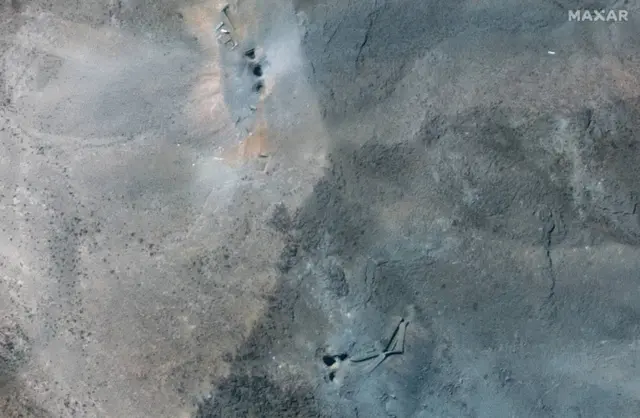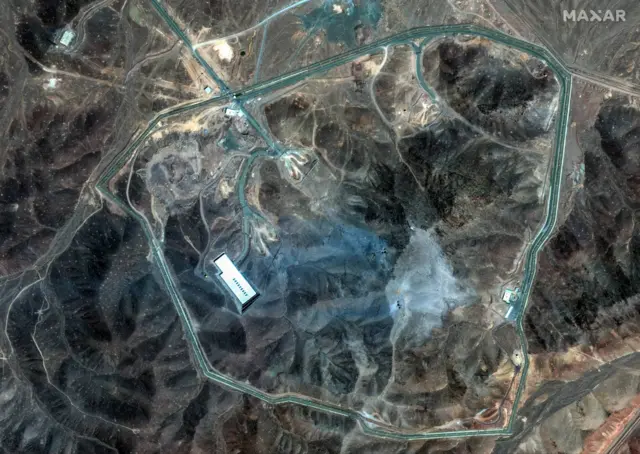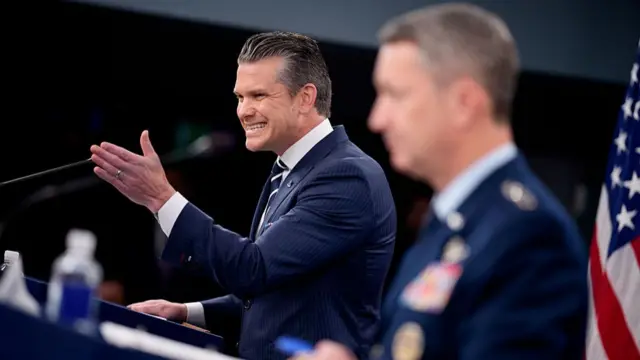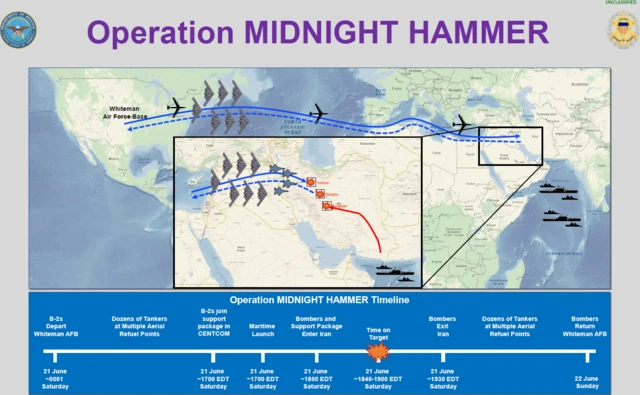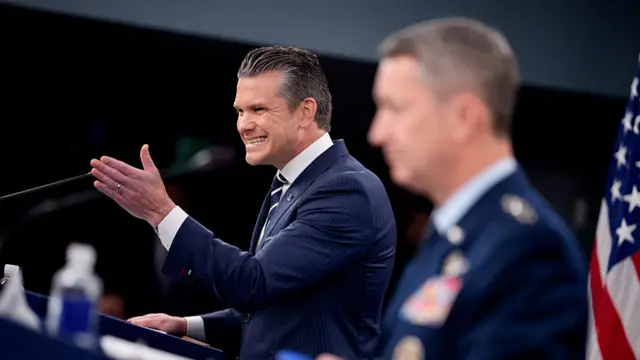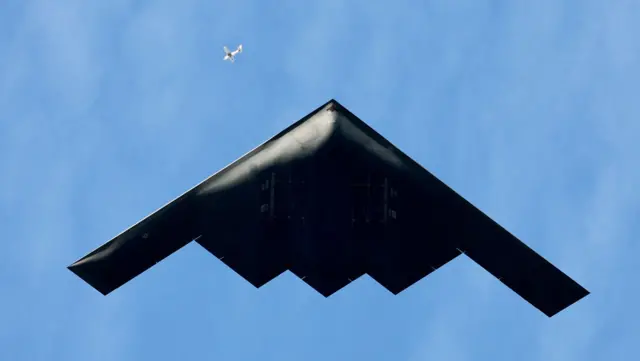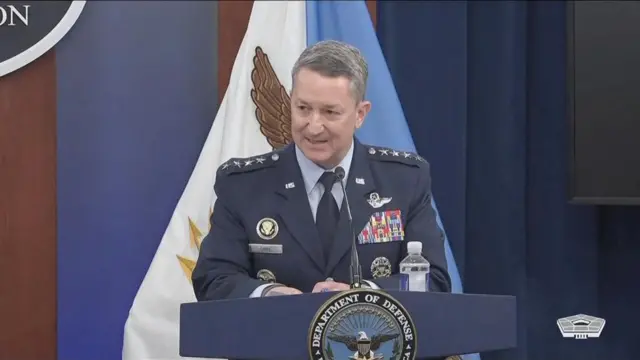Iranians left in the dark as information about bombings limitedpublished at 15:17 BST 22 June
Rayhan Demytrie
Reporting from the Iran-Armenia border
Iranians have continued to flee to neighbouring countries including Armenia.
At the Agarak border crossing one young woman who has travelled from Tehran has described continuous explosions and bombing sounds causing fear among residents.
She said that her family had to board up windows with sticks to prevent breakage. She said there were daily electricity blackouts, bread and water shortages and no internet access.
People are left in the dark with no information about where or when potential bombings might occur.
There are now rumours that the authorities might close the borders.
She also said she thinks some people don't want a regime change imposed by foreign countries.
"We were trying to make changes ourselves inside and I don't think a change coming from US or Israel would be a good change".







